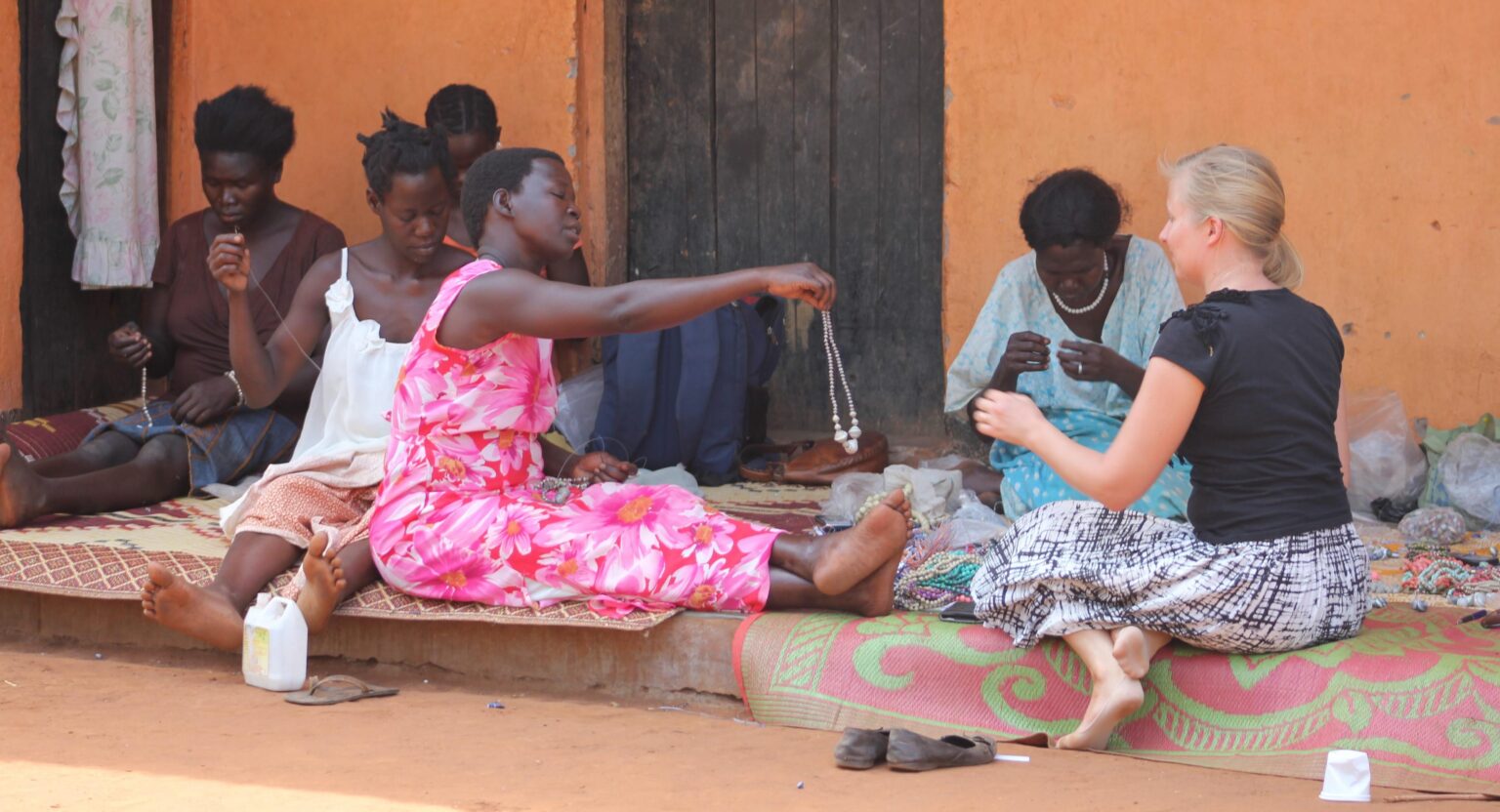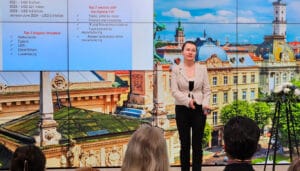Entrepreneur couple developed a business importing jewellery

Agulu imports jewellery made by Ugandan women. The African-based business was launched with support from Finnpartnership.
The Acholi women of Northern Uganda make beautiful necklaces, bracelets and earrings out of paper. Long-term Uganda residents Sanni and Asko Rosenström believe that their crafts will be popular in Finland, too.
The couple relocated to the country from Finland in 2010 as missionaries. When their mission ended, they wanted to stay in Uganda and started looking at ways to earn a living. “We had met a woman who makes jewellery and knows other craftspeople. Their skilfully made pieces are sold in the USA by a couple of organisations and online stores, and we thought we should try it in Europe,” says Sanni Rosenström.
A business advisor suggested contacting Finnpartnership
During a trip back in Finland, the Rosenströms visited an enterprise agency for advice about starting a business. The business advisor liked their idea and suggested getting in touch with Finnpartnership. The Rosenströms successfully applied for business partnership support from Finnpartnership, and they have used it to develop their business plan and cover various business start-up costs in Uganda.
“Without Finnpartnership’s support, we wouldn’t have been able to start our business,” Sanni says.
The Rosenströms, who are based in Gulu, Northern Uganda, have needed assistance from local consultants such as lawyers. The single biggest cost is a work visa for business operators. A three-year visa costs US$7,500 (about €6,400) per person.
The Rosenströms trade in Finland under the name Agulu, which is an Acholi word for a traditional handmade clay pot.
Important source of income for poor women
The jewellery pieces are made from paper strips rolled into beads and coated with varnish. Agulu currently has five women supplying jewellery on an ongoing basis. “We buy the pieces directly from the craftspeople without any middlemen. I ride to villages on my scooter to visit the craftswomen in their homes. In this way, I can be sure that the profits reach the makers,” Sanni explains.
The craftswomen are skilled, but the quality of the products had to be improved for the international market, and the designs had to be tweaked as well.
The Rosenströms are planning to organise additional training for local craftswomen. Finnpartnership’s support will be used in this endeavour. The couple are also looking to recruit new suppliers.
“We are involved in voluntary work, which gives us opportunities to meet new people and build contacts. Sometimes women come to our doorstep to offer their jewellery, as people have heard about Agulu.”
In poor rural areas of Northern Uganda, jewellery-making is an important source of income for women. Poverty has been exacerbated by instability in the region. During the 1990s and 2000s, the Gulu area was terrorised by an armed group called Lord’s Resistance Army, which drove thousands from their homes. “Many of the region’s residents grew up in refugee camps. Women especially have missed out on education and learning to read.”
Bureaucracy requires patience
In order to start their business, the couple had to register a company in Uganda. According to Asko Rosenström, the biggest challenges so far have been in dealing with official matters. “Visits to government offices require patience. Even the simplest matters can take longer to sort out than you had planned. On the other hand, as long-term Uganda residents we are used to it.”
Asko says that showing anger would be a big mistake. “No matter how frustrated you are, you must be courteous and respectful when dealing with the authorities. Otherwise nothing gets resolved.” The Rosenströms have been able to get most of their business matters dealt with in Gulu. In a small place it is easy to get to know people, which helps. Being able to speak the local language is also a huge plus.
In work permit and visa matters, the couple have had to visit the immigration office in the capital Kampala. These visits take a long time, as the office can be swamped with customers. “Just getting a work permit took 18 months from when we started the business,” says Asko.
Next focus is marketing
The entrepreneur couple have so far spent most of their time on getting the production side in order. Now they intend to focus on marketing their business. They have showcased their products at various events in Finland. Agulu also has an online store, which can ship products anywhere in the world.
Agulu jewellery is sold by a handful of retailers in Finland. They are mostly small design stores that take smaller orders to see how the products sell. “Our aim is to find bigger retailers as well to make the business profitable,” says Sanni.
Logistics is not an issue for Agulu, since paper jewellery is lightweight and can be shipped to customers anywhere in the world.
Share on social media


